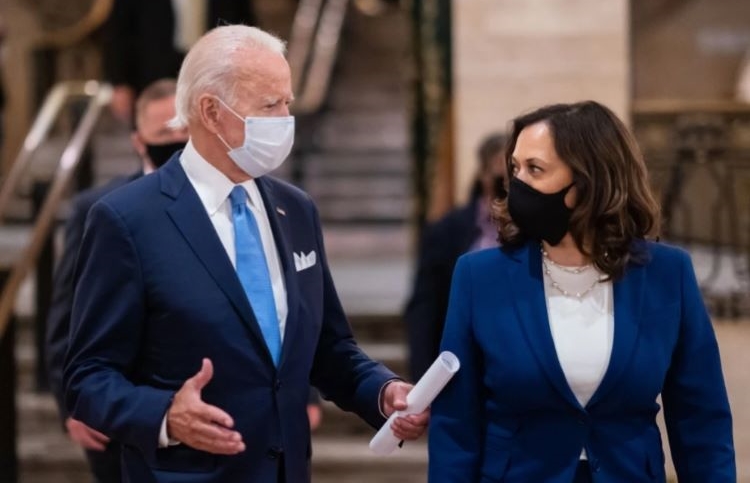Eduardo González
The U.S. Administration has acknowledged that it is in contact with the Governments of Spain and Canada regarding the possible reception of Central American refugees from the United States.
This was acknowledged this past Monday by a senior White House official during a press briefing on the commitments of the Vice President of the United States, Kamala Harris, in relation to the root causes of migration.
During the meeting, a journalist asked if Kamala Harris plans to meet with any member of the Spanish delegation during the Summit of the Americas -which is being held from this past Monday until next June 10 in Los Angeles (California) and which will be attended from tomorrow by the Minister of Foreign Affairs, José Manuel Albares- to address the possibility of welcoming refugees.
“On the issue of Spain and Canada, let me just say: We’ll have further announcements in the course of the week about migration,” said the senior official, whose name is not cited, through the White House website. “It is one of the issues that this summit is tackling, and there’s been an in-depth conversation going on with all of the countries of the hemisphere but then also some external partners like Spain, which has been really helpful,” he continued. “So, we’ll have more to say on that in the course of the week. But there’s definitely in-depth conversations going on about a regional approach to those issues. And the two countries you mentioned are a core part of that,” he added.
Last week, the prestigious U.S. news portal Axios reported, citing “internal planning documents”, on President Joe Biden’s desire to be able to announce, during the Summit of the Americas, the signing of an agreement by which Spain commits to resettle Central American refugees, a move that would favor the U.S. President politically because of the very high number of asylum seekers his Administration is facing at the southern border.
According to these sources, the initial number of refugees resettled by Spain would be “modest” but “symbolically important” and would be part of the Spanish Government’s interest in doubling or even tripling the number of temporary workers for the construction sector from Central America. It has not been specified whether some nationalities would be favored more than others when it comes to their resettlement in Spain.
According to Axios, this agreement is the result of the meeting held on May 25 in Madrid of the Spain-US Working Group on Central America, which was attended by the Secretary of State for Latin America and the Caribbean and Spanish in the World, Juan Fernández Trigo, and the US Assistant Secretary of State for Western Hemisphere Affairs, Emily Mendrala, along with representatives of the United States Agency for International Development (USAID), the Department of Homeland Security, the Spanish Agency for International Development Cooperation (AECID) and the Ministry of Inclusion, Social Security and Migration. At the end of that meeting, the two parties reported that they had “studied proposals and actions to address jointly and with the countries of the region the challenges posed by forced displacement and irregular migratory movements in and from Central America”.
The possible signing of the agreement would coincide with the attendance of José Manuel Albares to the Summit of the Americas as a guest (the Summit brings together the leaders of the member states of the Organization of American States, OAS, in which Spain has permanent observer status), who will leave tomorrow for the United States. Ministry sources contacted by The Diplomat could not advance any information on the possible agreement with the US.
The ninth Summit of the Americas brings together, under the theme Building a Sustainable, Resilient and Equitable Future, the 32 heads of state and government of the OAS: Antigua and Barbuda, Argentina, Bahamas, Barbados, Belize, Bolivia, Brazil, Canada, Colombia, Costa Rica, Chile, Dominica, Dominican Republic, Ecuador, El Salvador, Grenada, Guatemala, Guyana, Haiti, Honduras, Jamaica, Mexico, Panama, Paraguay, Peru, Saint Kitts and Nevis, Saint Vincent and the Grenadines, Saint Lucia, Saint Vincent and the Grenadines, Suriname, Trinidad and Tobago, United States, Uruguay.
The biggest controversy of this Summit is the absence of Venezuela, Nicaragua and Cuba. The president of Venezuela, Nicolás Maduro, ceased to belong to the OAS in 2019, the president of Nicaragua, Daniel Ortega, did the same in 2021 -after this organism did not recognize his electoral victory for a fourth consecutive term- and Cuba, simply, has never belonged to this organization. The President of Mexico, Andrés Manuel López Obrador, has resigned from the Summit due to the absence of these three countries.







